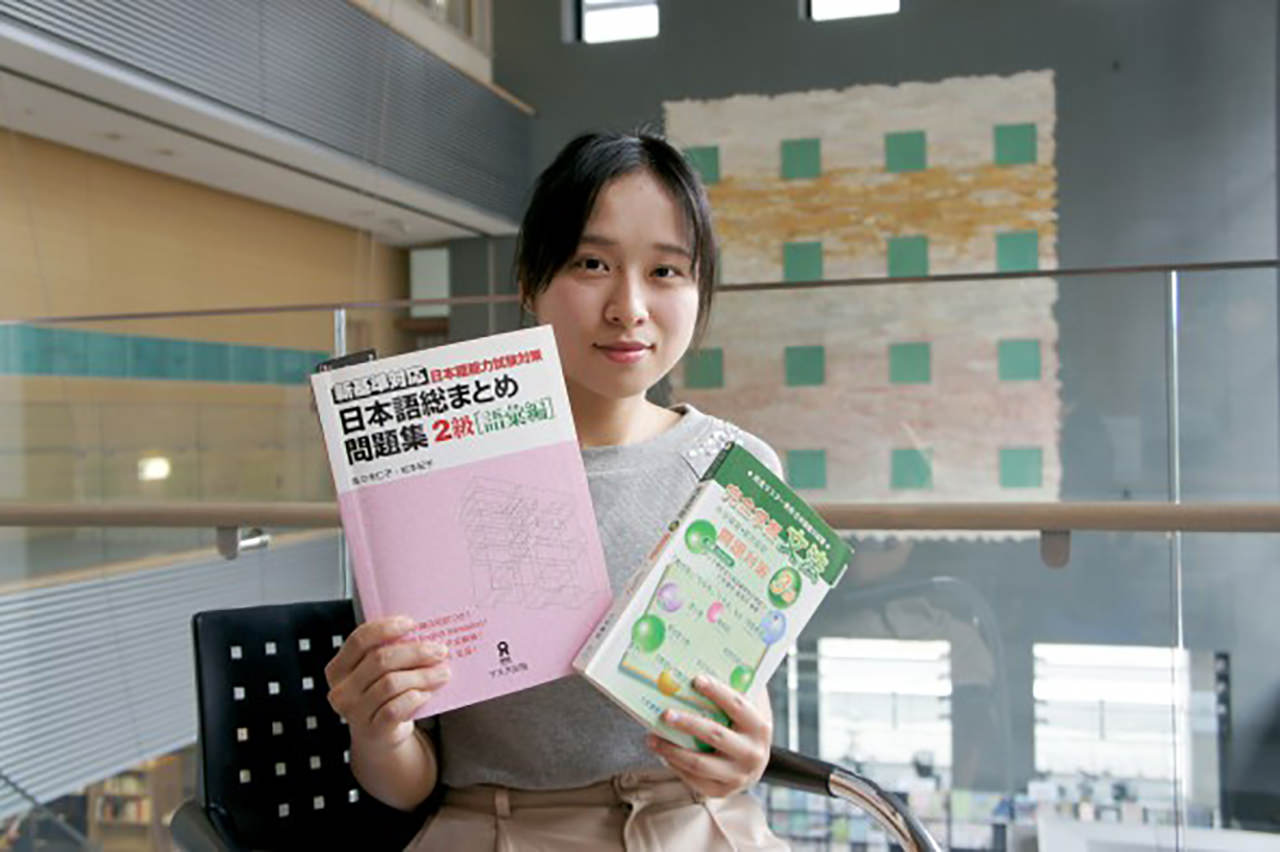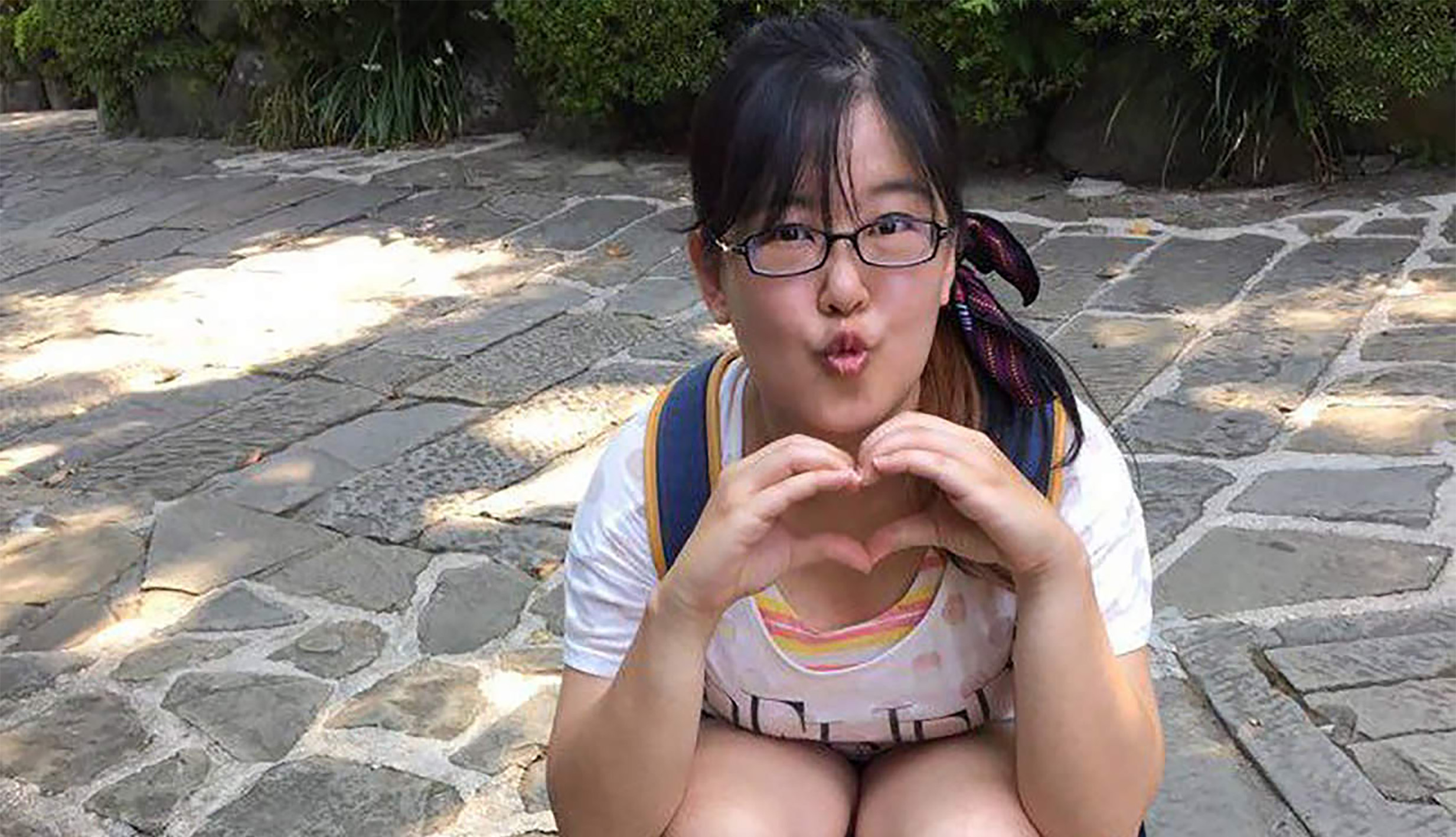Get Deep into Studying Japanese Culture with the Supportive Environment at Kyoto Tachibana University
2022.03.14
[PR] 京都橘大学
Interviewing the Students
Chen Yun (4th year in Japan)
3rd year student in the Course in Japanese Language and Literature, Department of Japanese Language and Literature, Faculty of Humanities
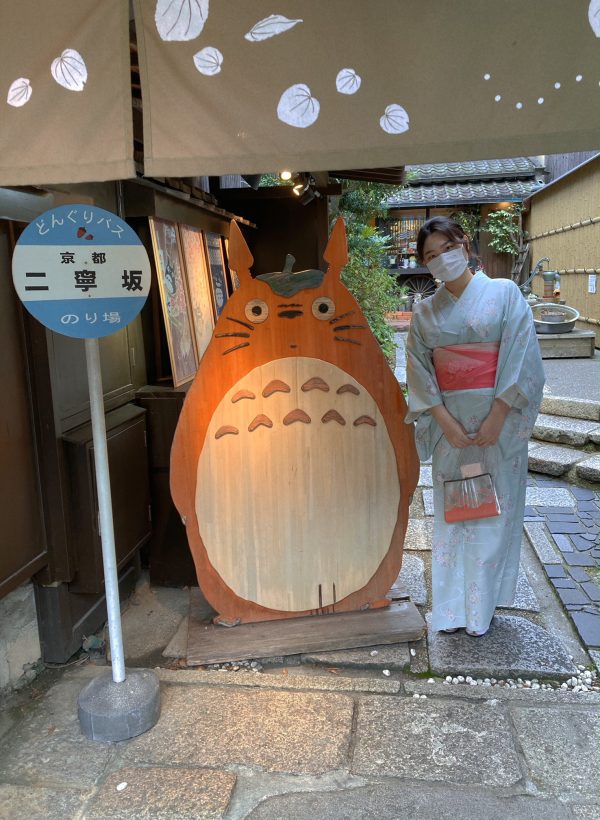
@Nineizaka
Yang Miaomiao (3rd year in Japan)
1st year student in the Department of History, Faculty of Humanities
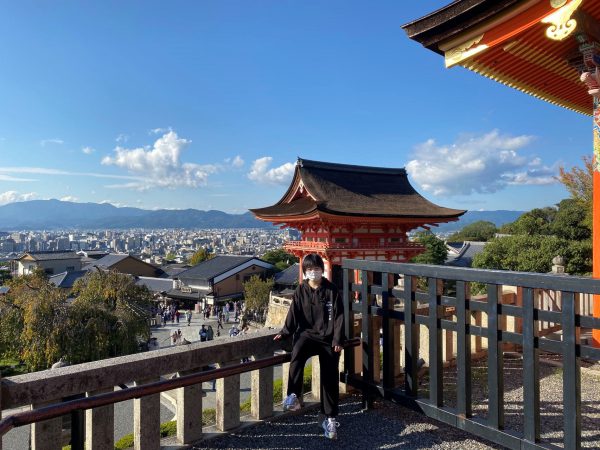
@Kiyomizu-dera Temple
Q: What made you interested in Japan, and why did you decide to study abroad in Kyoto?
Chen: “I like anime, and I’m interested in nature and Japanese culture. When I visited Kyoto on a trip before studying abroad, I was really drawn to the way you can sense the connection between modernity and history. I’ve gone to a lot of places while living in Kyoto, but my favorite places are still the ones that had the greatest impact on me when I saw them for the first time: Sanjo Bridge, Heian Jingu Shrine, or the museum nearby.”
Yang: “I’ve been a fan of Kyoto Animation for a long time, and I used to think that if I came to Japan, I would want to come to Kyoto. But when I was actually preparing to come study abroad, my teacher at the time suggested that I take a look at Japanese language schools in other cities if I was planning to go to university in Kyoto, so I went to a Japanese language school in Tokyo. In Kyoto, my favorite place is the Kamo River. I love strolling along the river and feeling the wind on my face. I like Mt. Daikichi in Uji, too–I climb the mountain there sometimes!

Chen at Mt. Daikichi
Q: Why did you decide to continue your studies at Kyoto Tachibana University?
Chen: “I liked The Tale of Genji, and I wanted to study classical Japanese literature at university. I decided on Kyoto Tachibana University after speaking with the teacher at my Japanese language school, who said that their Faculty of Literature was famous. When I started getting deeper into my studies, the topic was much more complex than I’d imagined and it was pretty tough (laughs). But I’m so thankful that my teachers have provided such thoughtful support by correcting my papers and proofreading my writing.”
Yang: “I really wanted to go to university in Kyoto, so I gathered as much information as I could. I decided to study here when I learned that Kyoto Tachibana University has a Women’s History major, which was very close to the subject I’d originally wanted to study, Gender Studies & Sociology. I’m able to study not only Japanese, but also about Japan’s culture and other affairs. There aren’t many international students, so I feel I’m able to do more focused learning than I would in a class with many people.”
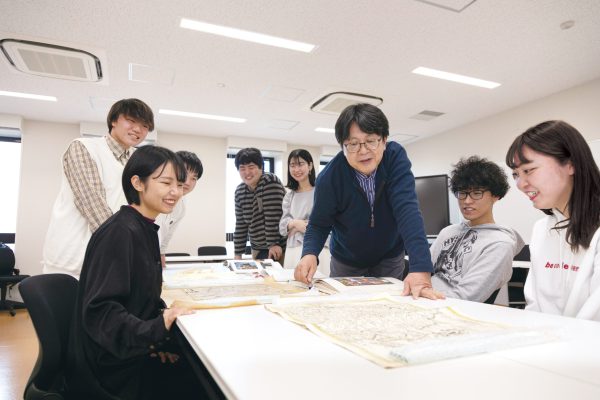
Class at the university 1
Q: What do you study in class?
Chen: “I’m mostly focusing on my graduation thesis. I’m writing about an analysis of misuse of Japanese by Chinese learners of Japanese. Someday I’d like to become either a Japanese teacher, or do research about Japanese language education, so I’m planning to go to grad school next.”
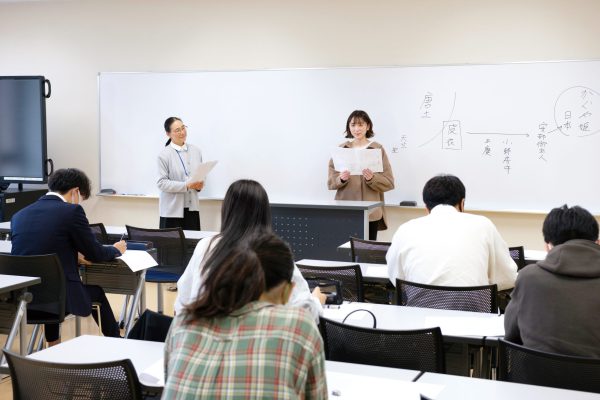
Class at the university 2
Yang: “I’m in the History Department, so I’m studying Japanese history. In my introductory research seminar, one work is selected from the works cited in our “Reading Collection” (a project in which students read through 100 specialized books and reflect on them), and classmates give presentations according to the presentation theme. Then the other students offer their feedback and ask questions. It’s really interesting to learn about history through the eyes of each of the students.”
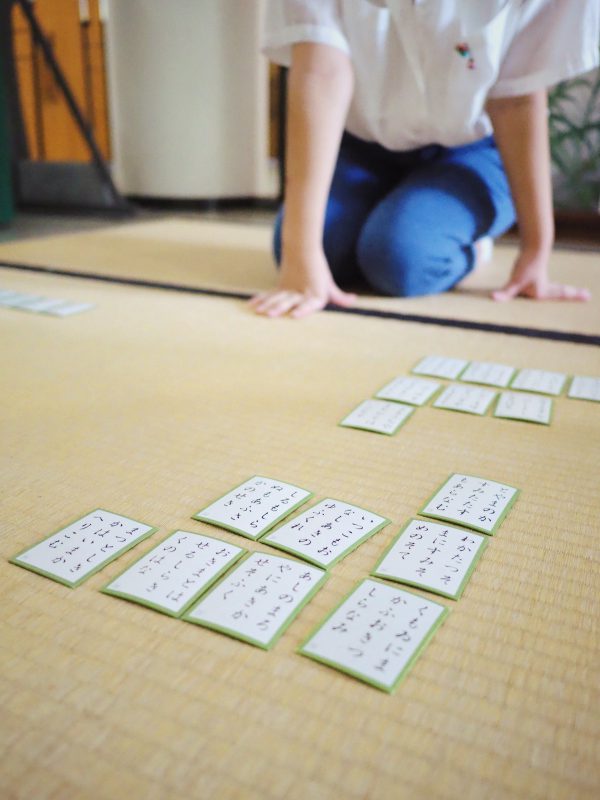
Chen at Omi Jingu Shrine
Q: What do you do on your free days?
Chen: “I enjoy shopping or traveling. I’ve been to a lot of places, but Ise and Kanazawa were some of the most memorable. I really like seaside cities. I haven’t been able to go many places recently, so I’ve been enjoying my hobby of sutra writing or watching anime and TV dramas.”
Yang: “I go walking through Kyoto. I often go to the museum, and I like taking photos, too, so I take pictures of the city as I walk. When I’m at home I often read novels. I’m not working part-time at the moment, but I’m thinking about starting work at a ramen shop!”
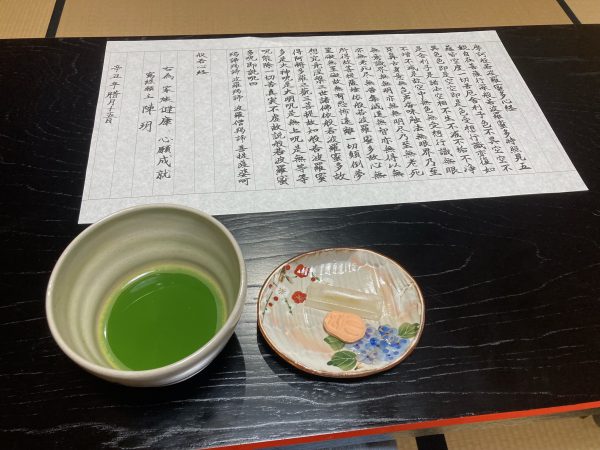
Chen at Shorin-ji Temple
Q: How did you study Japanese?
Chen: “I started studying Japanese in high school just out of curiosity. I’ve always had a great interest in food, so I started by studying about the food. I started studying seriously after I graduated high school, so I went to a foreign language school in China.”
Yang: “For me it started when I tried to memorize the Japanese syllabary in my third year of junior high school. After I graduated high school, I started studying seriously to study abroad in Japan. I think studying something you’re interested in is really the best way to go.”
Please share a message or any advice you have for prospective international students to Kyoto!
Chen: “Don’t worry if you’re not confident in your Japanese language skills to study at a university in Japan. Kyoto Tachibana University in particular has a lot of Japanese classes, and the teachers will proofread your reports and help guide you with how to write. I recommend listening carefully to the course guidance in your first year! In your second year you can think carefully about your major. You can do it!”
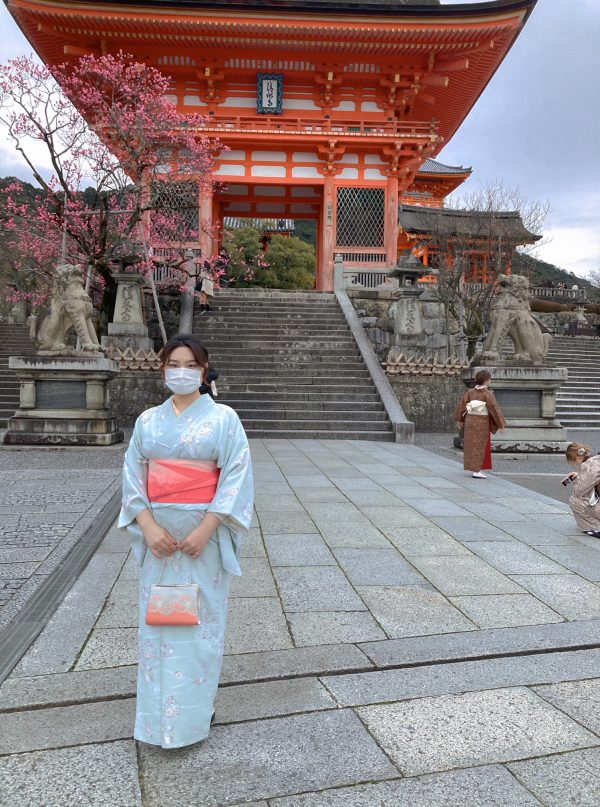
At Kiyomizu-dera Temple
Yang: “In the beginning, I was worried that my Japanese wasn’t proper either, and I was afraid to speak. Of course, it’s important to use proper language in your studies, but in everyday conversation, I think getting across what you want to say is much more important than using proper vocabulary or grammar. Don’t worry about the little things, and just speak! If you don’t know something, ask your teacher or your friends lots of questions, and enjoy your time studying abroad!”

At Kiyomizu-dera Temple
Kyoto Tachibana University Website: https://www.tachibana-u.ac.jp/english/






